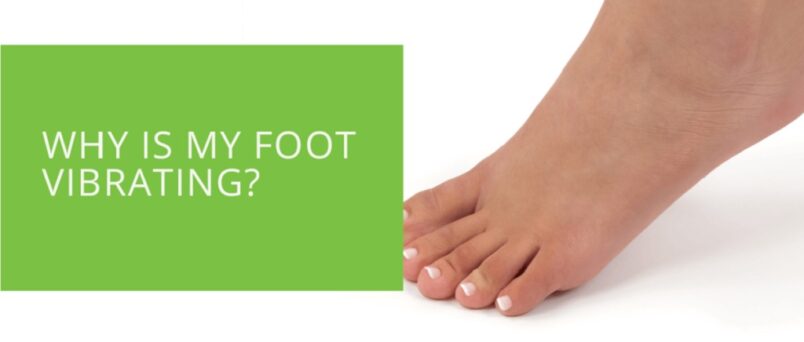Experiencing an odd vibration or buzzing sensation in your left foot can be alarming, but is usually nothing to be too concerned about. If you’ve been experiencing an odd sensation of vibration or buzzing in your left foot, it can be quite unsettling. However, in most cases, there may be no serious underlying condition causing it. There could be several reasons why is my left foot vibrating, and identifying the underlying cause is essential to determine the best course of action.
The sensation could be due to a nerve issue, such as peripheral neuropathy, or it could be related to a muscle spasm or twitching. Other possible causes may include restless leg syndrome, dietary deficiencies, dehydration, or excessive caffeine intake. If you’re experiencing persistent and severe symptoms, it’s essential to seek medical attention immediately. In the meantime, you can try some self-care measures, such as massaging your foot, soaking it in warm water, or practicing relaxation techniques like yoga or meditation.
Common Causes of Foot Vibrations
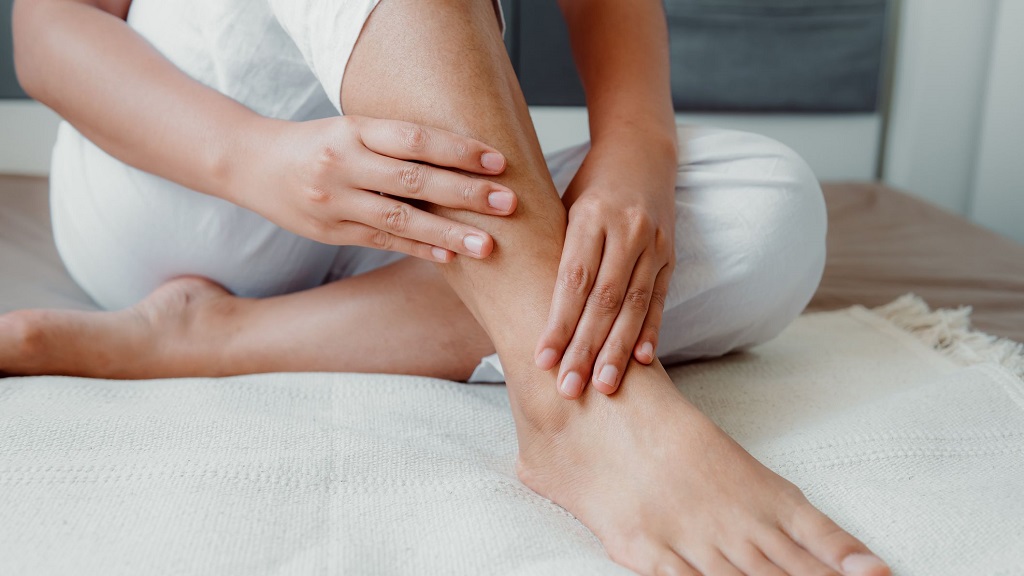
1. Foot Nerve Issues
One of the most common reasons for a vibrating left foot is nerve problems in the vibrating left foot foot or leg. Conditions like peripheral neuropathy, nerve damage or entrapment can cause tingling, numbness, and vibrations in the foot.
The superficial peroneal nerve runs along the outer left ankle and foot. If this nerve gets compressed or inflamed, it can cause a vibrating or tingling feeling in the left foot. Carpal tunnel syndrome in the ankle (tarsal tunnel syndrome) can also cause similar sensations.
Diabetic neuropathy is another common cause of vibrating left foot foot vibrations, as high blood sugar levels can damage the nerves in the lower extremities. Multiple sclerosis, vitamin B deficiency, and other conditions that damage the myelin sheath around nerves can also lead to foot vibrations.
2. Muscle Issues
Spasms, cramps, or twitching in the muscles of the left vibrating left foot foot can also cause buzzing vibrations. This can happen after strenuous exercise that overworks the foot muscles. Dehydration, mineral deficiencies, or consuming too much caffeine or alcohol can trigger involuntary muscle contractions too.
A foot cramp can feel like a vibrating, fluttering, or quivering sensation. Cramps often subside after gently stretching and massaging the affected muscle. Wearing proper footwear, staying hydrated, and getting enough magnesium and potassium can help prevent foot muscle issues.
3. Circulation Problems
Poor circulation in the lower left leg can also cause your left foot to vibrate or feel numb. One common cause is a condition called peripheral artery disease (PAD), where plaque buildup narrows the arteries supplying blood to the lower limbs.
People with diabetes, high blood pressure, and high cholesterol are at increased risk for PAD. The vibrations happen because reduced blood flow causes the nerves and muscles in the foot to spasm and signal that something is wrong.
Other circulation issues like varicose veins, deep vein thrombosis, or even just putting pressure on a nerve by crossing your legs for too long can trigger left foot buzzing as well.
4. Medication Side Effects
Some medications and supplements can cause foot vibrations as a side effect. Medications that affect nerve signals or muscle control like gabapentin, chemotherapy drugs, and some antidepressants may cause foot or leg twitching.
Statins, corticosteroids, and asthma medications have also been linked to muscle spasms and cramps that can cause a vibrating sensation in the foot. Always check the label for side effects and speak to your doctor if you suspect a medication reaction.
5. Stress and Anxiety
Stress and anxiety don’t directly cause foot vibrations, but they can contribute to muscle tension and cramping that leads to buzzing in the foot. When we’re stressed and anxious, our muscles tend to tighten up and may start involuntarily contracting or twitching.
Deep breathing, yoga, massage, and other relaxation techniques can help calm an anxious mind and relax tense foot muscles prone to vibrations. Speaking to a counselor or therapist can help address chronic stress as well.
6. Vitamin and Mineral Deficiencies
Lacking certain vitamins and minerals can sometimes manifest as left foot vibrations. Deficiencies in vitamins B1, B5, B6, B12, vitamin E, magnesium, calcium, and potassium have all been linked to muscle twitching and cramping.
Make sure your diet includes plenty of nutrient-dense fruits, vegetables, nuts, seeds, beans, eggs, fish, and lean meats. Taking a multivitamin or targeted supplement can help fill any nutritional gaps causing foot buzzing as well.
7. Pregnancy
During pregnancy, changes in blood volume and circulation combined with extra pressure on the pelvis and legs can irritate nerves and result in tingling feet. The left foot tends to be more affected because of how the fetus sits.
Elevating the legs, using a pregnancy pillow, wearing compression socks, stretching the calves, and staying active can all help alleviate pregnancy-related foot vibrations. Always check with your OB-GYN as well.
8. Alcohol Withdrawal
People withdrawing from excessive alcohol use can experience tingling, numbness, and vibrations in the feet. This neuropathy is caused by alcohol’s toxic effects on nerve tissues compounded by nutritional deficiencies common in those with alcohol use disorder.
Seeking medical help for alcohol withdrawal is important, as severe symptoms like seizures can be dangerous. Thiamine and other B-vitamin supplements can help reverse some of the nerve damage as well.
9. Benign Essential Tremor
Benign essential tremor is a nerve disorder that causes involuntary shaking or trembling. When it affects the legs, feet, or toes, it can feel like a constant vibration. The exact cause is unclear but may involve faulty signaling between the brain and muscles.
Essential tremor tends to run in families and worsen with age. There’s no cure, but medication like beta blockers can dampen the signals causing the shaking. Limiting caffeine and getting enough sleep, magnesium, and B vitamins may help as well.
10. Parkison’s Disease
Parkinson’s disease is a disorder of the central nervous system that can cause tremors, rigidity, and loss of voluntary muscle control. One of the classic symptoms is a resting tremor that can affect the hands, feet, legs, lips, and chin.
In the early stages, Parkinson’s tremors may be intermittent and mostly affect one side of the body like the left foot. The tremors tend to worsen with stress or exertion. Medication, physical therapy, massage, and rest can minimize Parkinson’s tremors.
When to See a Doctor About Foot Vibrations
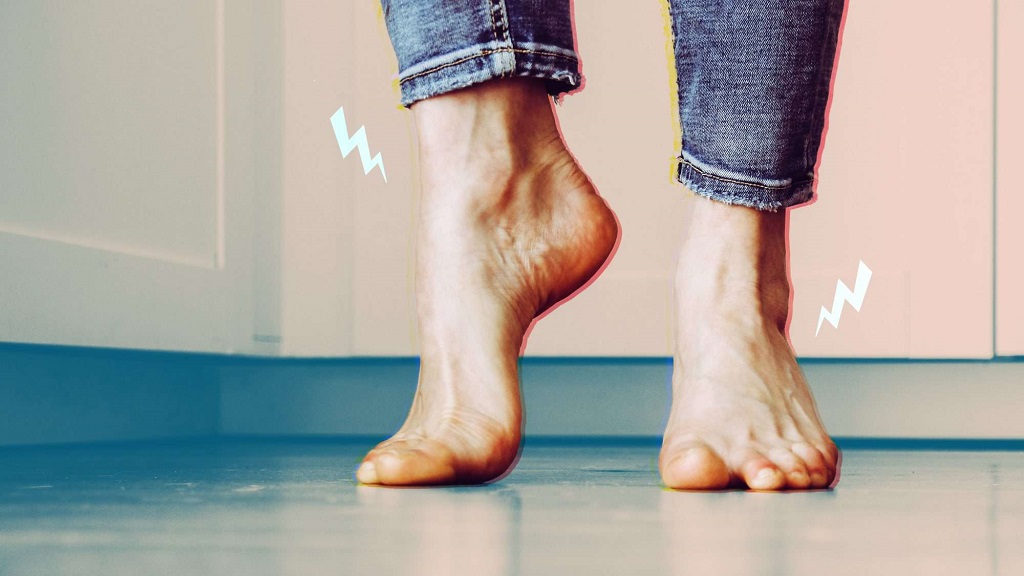
- The vibrations do not go away after moving positions, stretching, and massaging the foot
- You have accompanying numbness, tingling, or burning sensations in the foot
- The vibrations disrupt sleep or daily activities
- You have muscle weakness in the legs and feet
- You have multiple sclerosis, diabetes, or a history of nerve damage
- You recently started a new medication that could cause foot tremors
- The vibrations started after a back, leg, or foot injury
- You have discoloration, temperature changes, or pain in the left foot
Seeking medical advice can help diagnose and properly treat the underlying cause. Rarely, persistent foot vibrations can be a sign of something more serious like a tumor, spinal issue, or nerve damage that needs evaluation.
Diagnosing the Cause of Left Foot Vibrations
To get to the root of incessant left foot buzzing, doctors may recommend:
- Physical exam – Checking for muscle wasting, weakness, and changes in reflexes or circulation
- Neurological exam – Testing nerve conduction, reflexes, and sensation in the legs and feet
- Blood tests – To check vitamin levels, kidney function, blood sugar, thyroid hormones, etc.
- EMG (electromyography) – Measures electrical activity in muscles and nerves
- MRI or CT scan – Provides images of soft tissues, nerves, and blood vessels in the leg and foot
- Nerve biopsy – Extracts a small nerve sample to check for damage under a microscope
Tracking when the foot vibrations occur and your symptoms is also key. Keeping a symptom journal and relaying all medications and supplements you take can aid diagnosis as well.
10 Tips to Stop Left Foot Vibrations
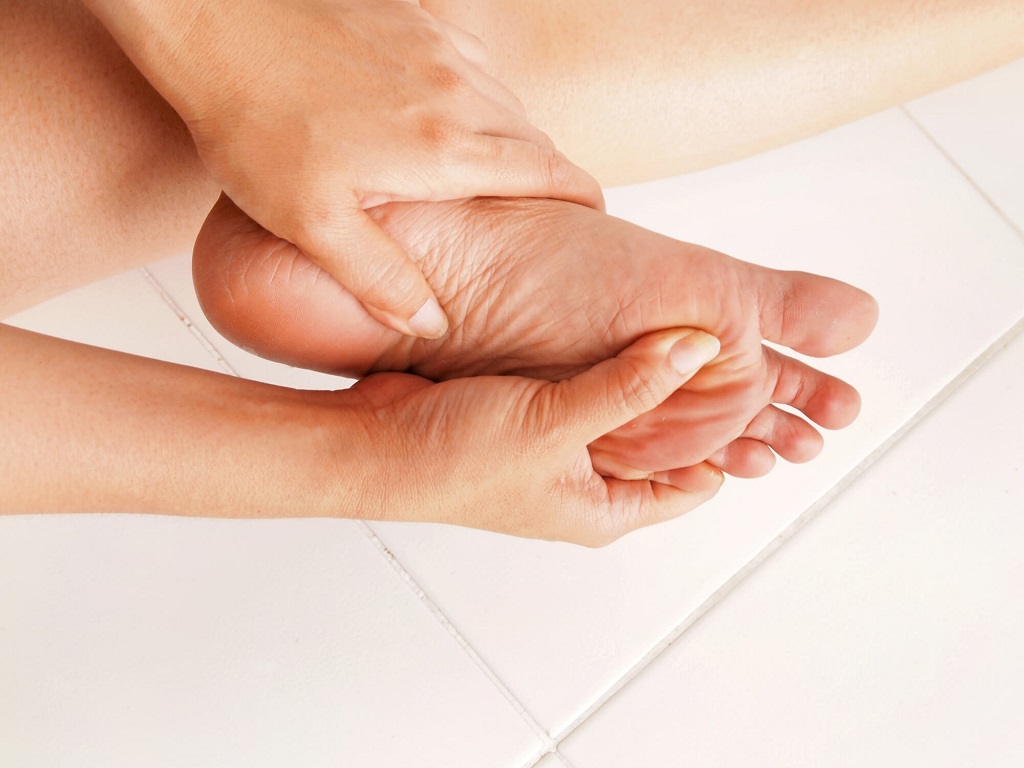
While waiting to identify the cause, try these 10 tips at home to minimize buzzing foot sensations:
- Stretch the calf, ankle, and foot muscles – Gently flexing and pointing the foot can relax tense muscles.
- Massage the foot – Use your thumbs to apply firm pressure and release tight spots.
- Wear supportive shoes – Cushioned shoes with arch support can take pressure off nerves.
- Avoid crossing your legs – Crossing at the knee can pinch nerves and restrict blood flow.
- Elevate your legs – Lie down and raise your feet above heart level to improve circulation.
- Apply heat – Warm (not hot) compresses can soothe muscle spasms.
- Take magnesium – Supplements or Epsom salt baths may calm twitching.
- Stay hydrated – Drink plenty of water. Dehydration can provoke cramps.
- Limit stimulants – Reduce coffee, tea, alcohol, and tobacco use.
- Try a vibration cushion – Sitting with your feet on a vibration pad may provide temporary relief.
When to Seek Emergency Treatment
Seek immediate medical care if you experience:
- Sudden loss of feeling or paralysis in the legs/feet
- Uncontrolled shaking or vibrating in the legs
- Loss of bladder or bowel control
- Fever, chills, or excessive sweating
- Bleeding, swelling, or red streaking in the leg or foot
These can indicate an emergency like a spinal injury, blood clot, or dangerous infection requiring urgent evaluation.
Long-Term Care for Chronic Foot Vibrations
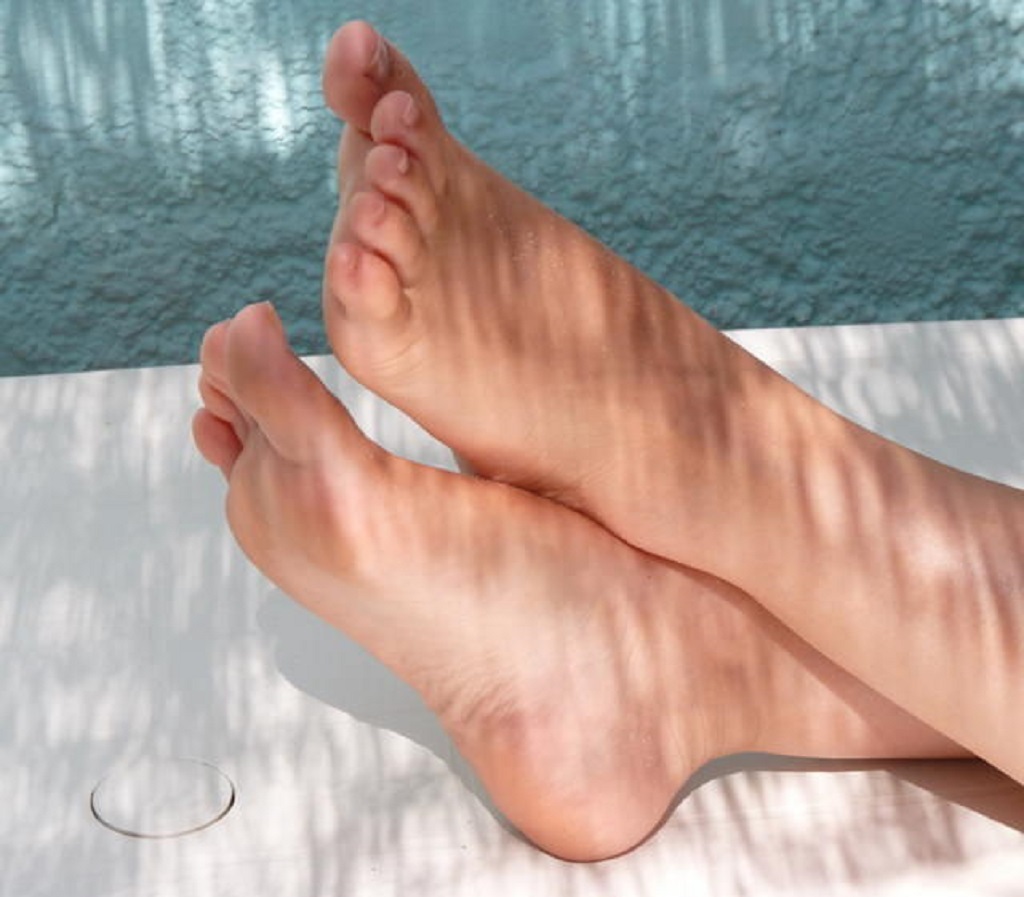
For ongoing foot buzzing or tremors, your doctor may recommend:
- Prescription medications – Such as gabapentin for nerve pain or propranolol for essential tremor
- Physical therapy – Stretching, exercises, and massage to reduce muscle tension
- Orthotics – Custom shoe inserts to support the foot arches
- Surgery – For severe cases of nerve compression or muscle dysfunction
- Lifestyle changes – More exercise, a healthy diet, quitting smoking, and limiting alcohol intake
- Alternative medicine – Options like acupuncture, reflexology, or reiki healing
Relieving stress, listening to your body, and tracking your symptoms can also help manage persistent foot vibrations. Stay persistent working with your doctor to control discomfort and get back to your normal activities.
Common Questions
- Are foot vibrations always a sign of something serious?
No, most causes of foot vibrations like muscle cramps, circulation issues, or vitamin deficiencies are not medically serious if temporary. But persisting vibrations or those accompanied by other symptoms do warrant medical assessment.
- How can you tell if foot vibrations are from nerves or muscles?
Nerve-related vibrations tend to come and go, often feel like buzzing/tingling, and may be related to position. Muscle vibrations are more likely after activity, feel like twitching/quivering, and stretching provides relief.
- What vitamin deficiencies cause foot tremors?
Thiamin (B1), pyridoxine (B6), cobalamin (B12), vitamin E, magnesium, calcium, and potassium deficiencies have all been linked to muscle spasms and shaking that could vibrate in the foot.
- Can anxiety cause your foot to vibrate?
Anxiety itself doesn’t directly cause foot tremors but can make you more prone to muscle tension, cramps, and twitching that vibrate in the foot. Managing stress and anxiety can help reduce these secondary symptoms.
- Can Parkinson’s disease cause foot vibrations?
Yes, a classic Parkinson’s symptom is a resting tremor that starts in the hand but can also affect the feet, legs, lips, and chin. It tends to worsen when stressed or moving and improve with rest.
When to Worry About Foot Vibrations
In summary, intermittent or short-lived foot vibrations are usually harmless, especially if stretching provides relief. But seek medical advice if vibrations:
An accurate diagnosis is key, as effective treatments are available for most causes of foot tremors and buzzing. With your doctor’s help, you can determine the source of the vibrations and take steps to regain normal sensation in your left foot.

